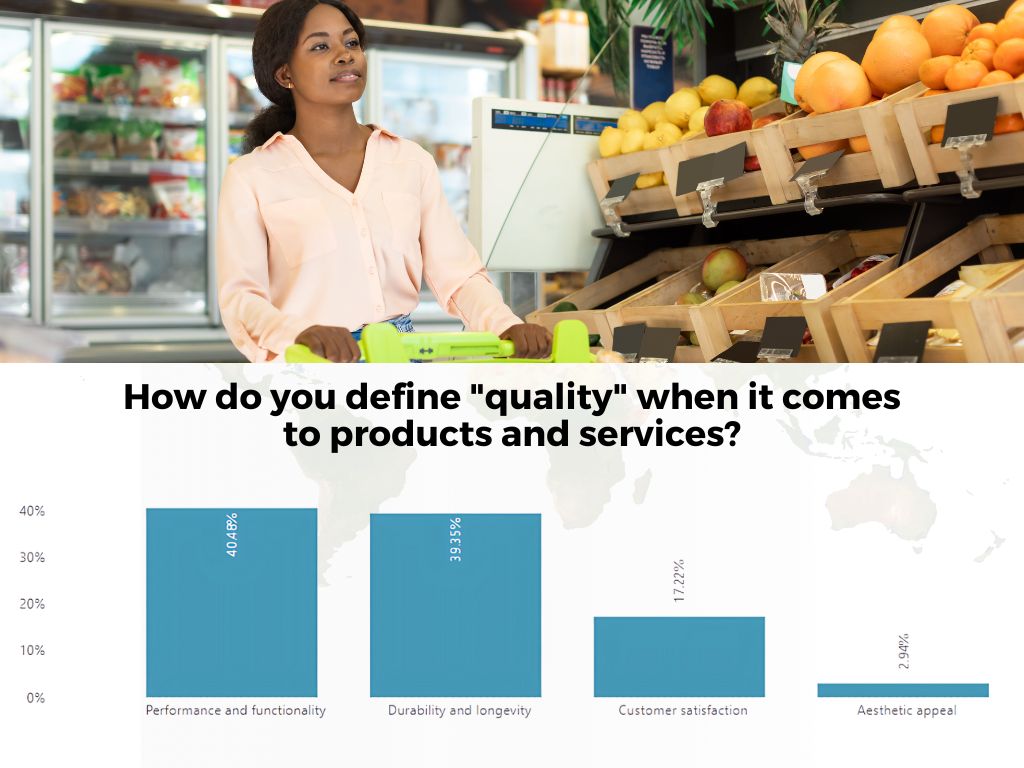- Contents
The choice between products quality and quantity can vary significantly depending on various factors such as socioeconomic status, cultural preferences, product type, and individual priorities. Similarly, when the price of a good rises, consumers tend to purchase less of it and seek out substitutes instead. Conversely, as the price of a good falls, people will tend to buy more of it.
In 2022, GeoPoll conducted a study on the Global costs of living, which was attributed to rising food and fuel prices, debt distress, and tightening financial conditions. In exploring various African markets and their array of everyday products, GeoPoll seeks to understand the crucial question: When faced with purchasing decisions, do consumers prioritize quality or quantity?
GeoPoll conducted a survey in Ghana, Kenya, and Tanzania in March 2024 to sheds light on several consumer preferences, including:
- Most purchased household items recently.
- Factors that influence purchasing.
- Shopping frequency.
- Which is more important, quality or quantity?
- Consumer purchase and satisfaction.
- Purchasing regrets.
Most purchased household items in the last 30 days.
According to the survey results, the top three household items purchased by respondents are cooking oil, sugar, and vegetables. A significant majority, 7.21%, reported buying cooking oil in the past seven days, with sugar following closely at 6.75% and vegetables at 5.87%.
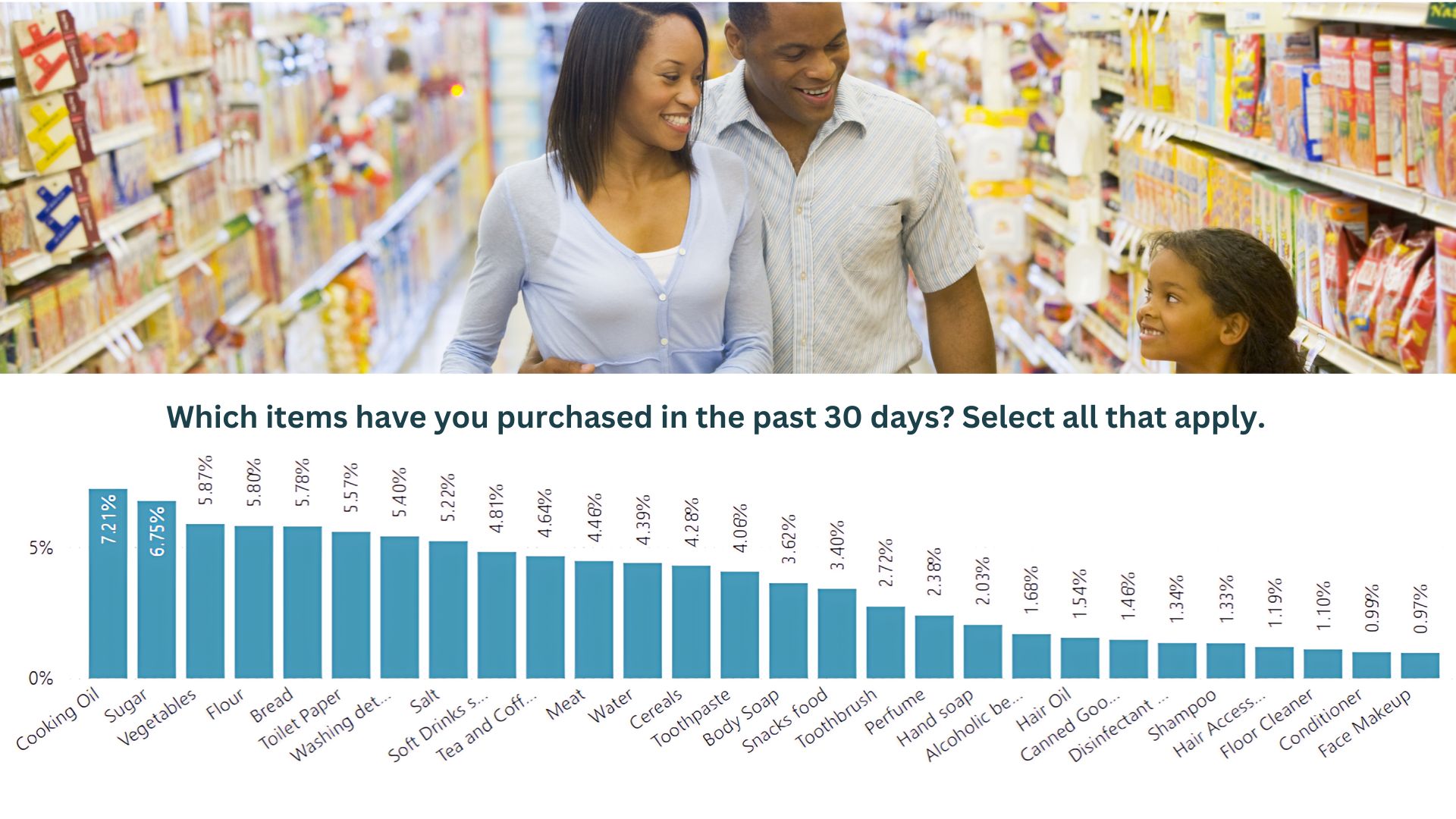
Ghana
Bread topped the list of most purchased household items in Ghana with 7.35%. Following closely behind were water, accounting for 7.28%, and sugar, at 6.42%.
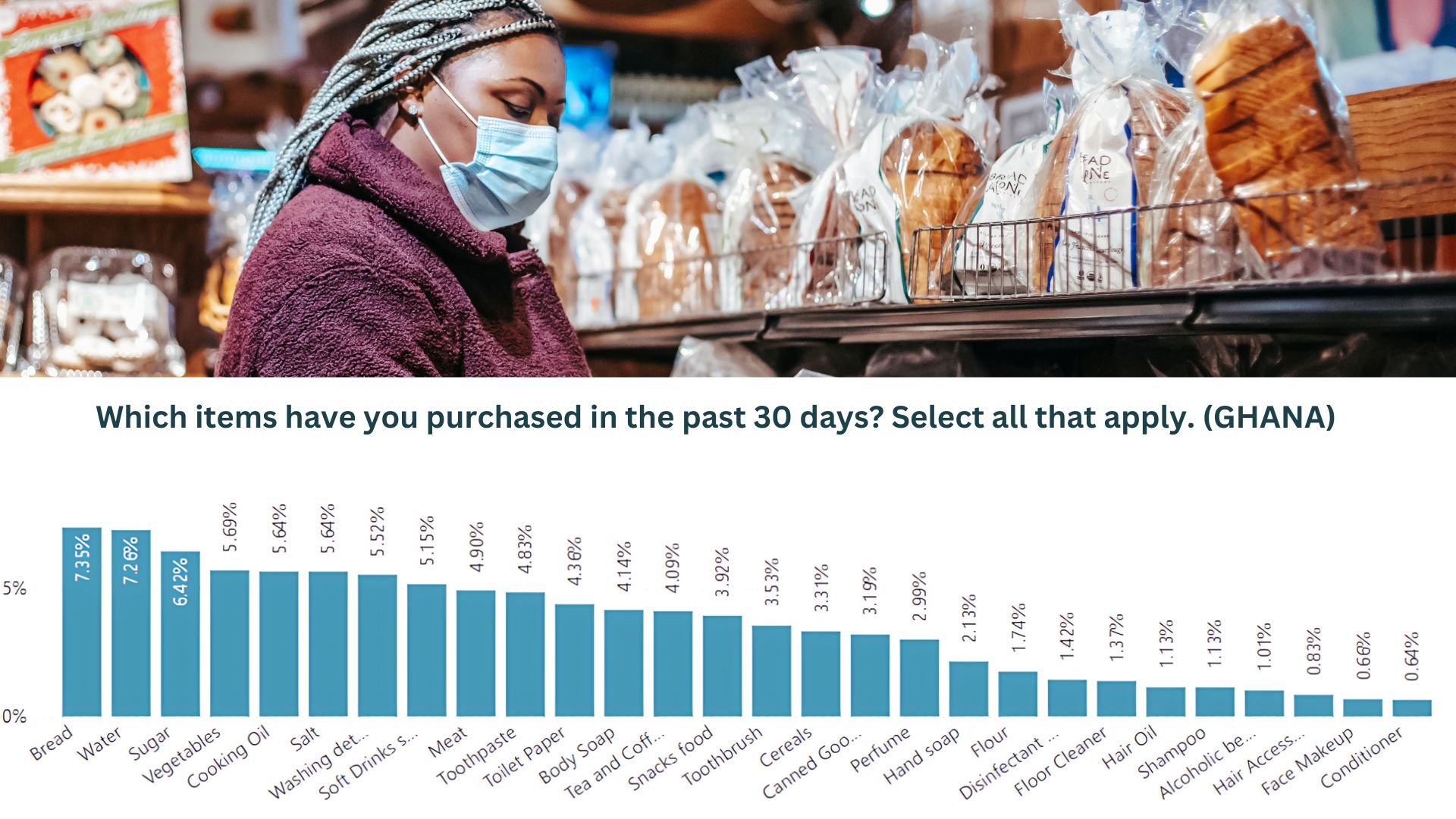
Kenya
In Kenya, cooking oil was the most purchased household item, with 7.29% of respondents, followed by sugar (6.57%), and flour with 6.27%.
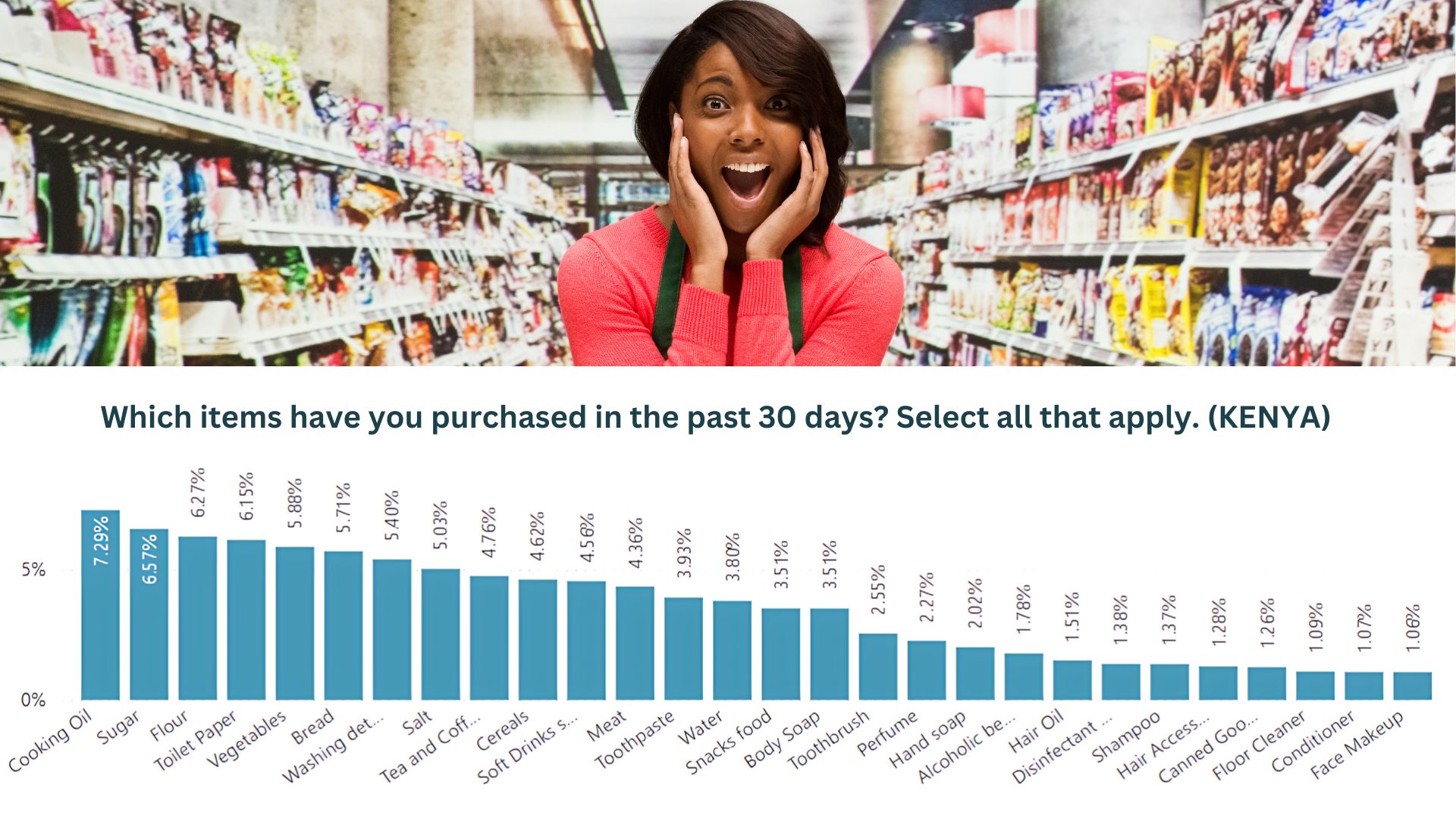
Tanzania
Our research reveals that Tanzanians have a strong preference for sweet items. Sugar claimed the top spot as the most purchased item, with 8.54%. Cooking oil followed closely at 8.23%, with soft drinks such as soda securing third place with 6.44%.
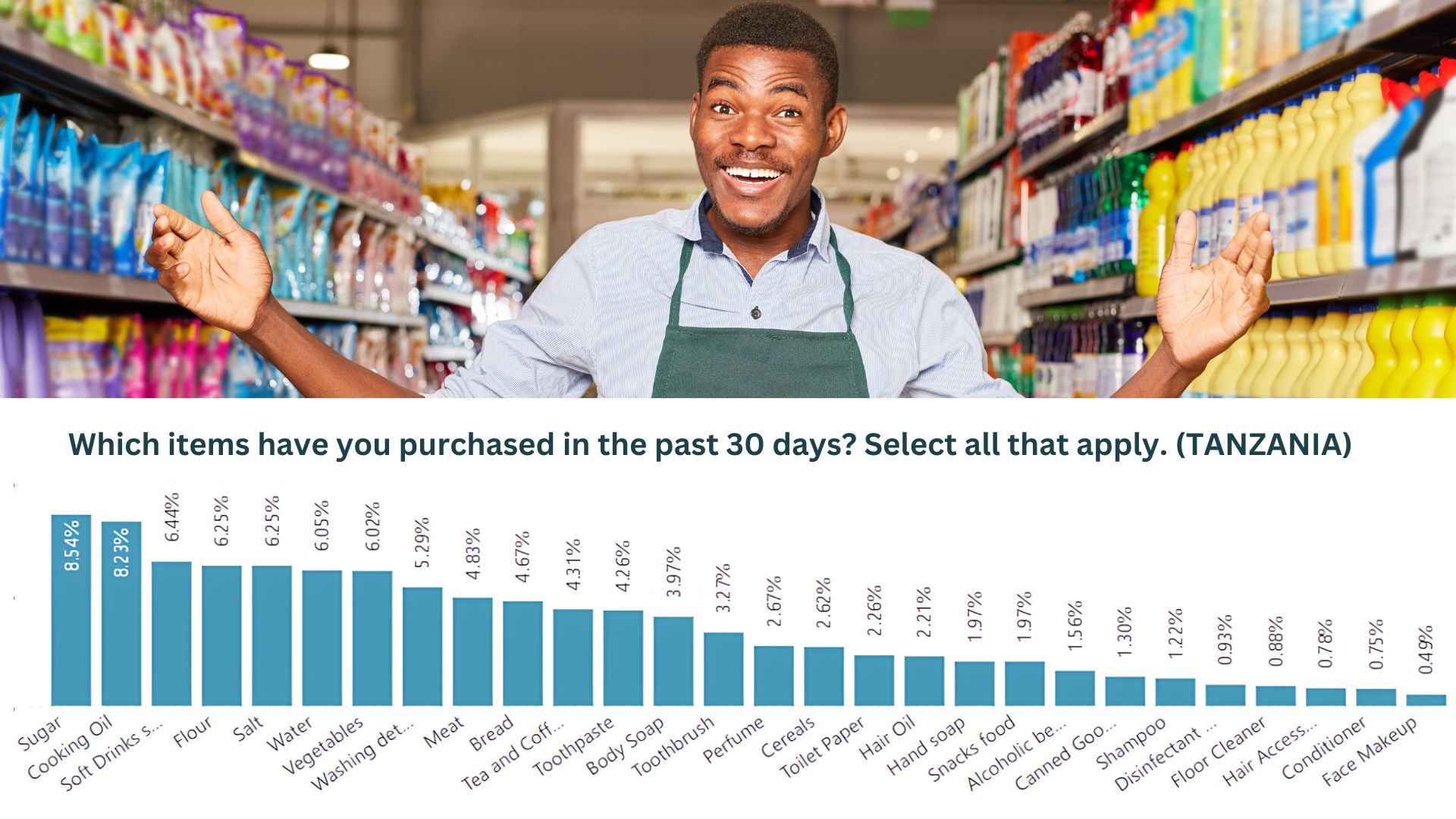
What is the most important factor that influenced purchase(s)?
Several factors influence purchasing decisions. According to our survey, quality emerges as the most crucial factor, with 33.18% of respondents indicating that they base their purchases primarily on this aspect. Price closely follows, with 31.07% of respondents considering it when making buying decisions. Brand reputation ranks third, with 14.02% of respondents citing it as a significant factor. Convenience influences 11.46% of respondents’ choices, while packaging plays a role for 7.62%.
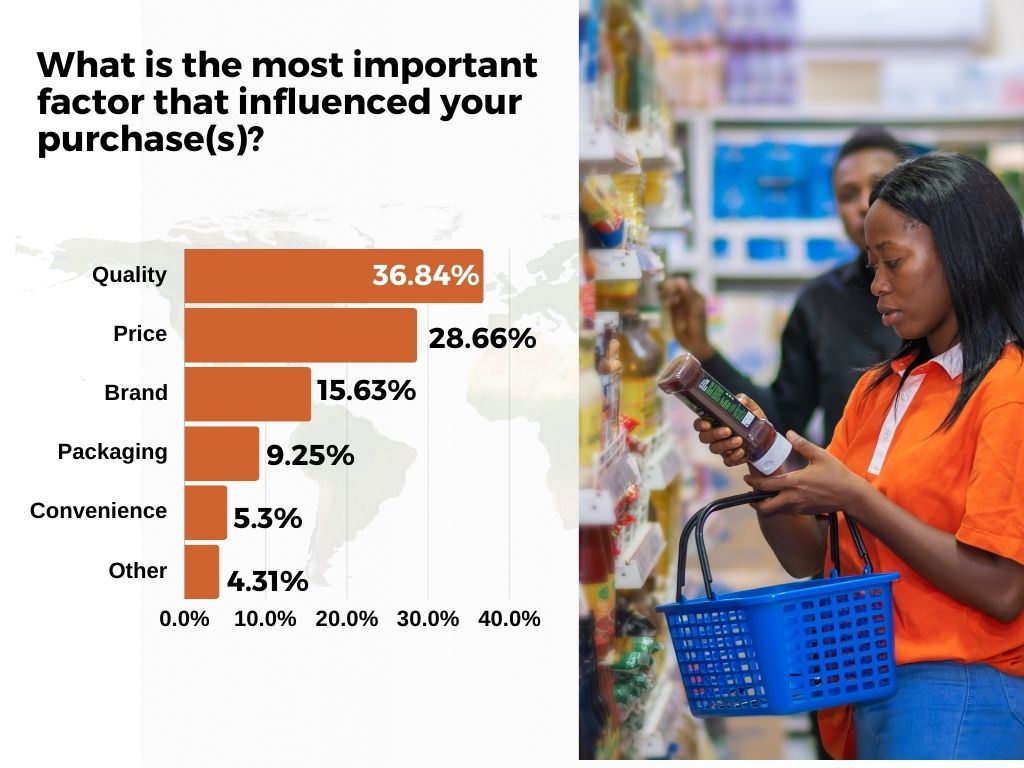
How frequently do you go shopping?
When questioned about their shopping frequency, the majority, comprising 62.53%, reported shopping at least once a week. Meanwhile, 31.01% stated that they shop once a month, with 4.25% indicating a shopping frequency of once every three months and 2.21% reporting shopping once a year.
Supermarkets are the preferred shopping destination, accounting for 25.07% of respondents. Marketplaces follow closely behind, at 18.61%, with shops/duka trailing slightly at 18.48%.
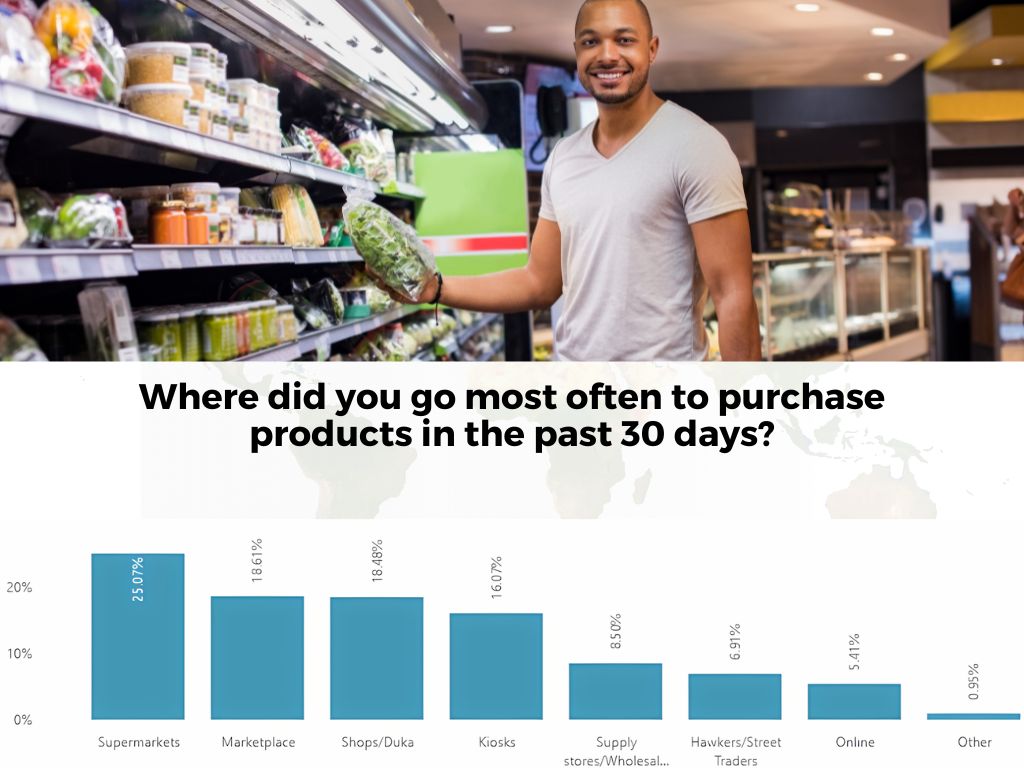
Quality or quantity, which is important
Our findings indicate a preference for quality over quantity, with a majority (60.08%) of respondents considering quality more important. A notable portion (20.14%) believe that quality and quantity hold equal importance. Additionally, 10.22% believe that circumstances dictate the significance of one over the other. Finally, 9.58% of respondents prioritize quantity over quality.
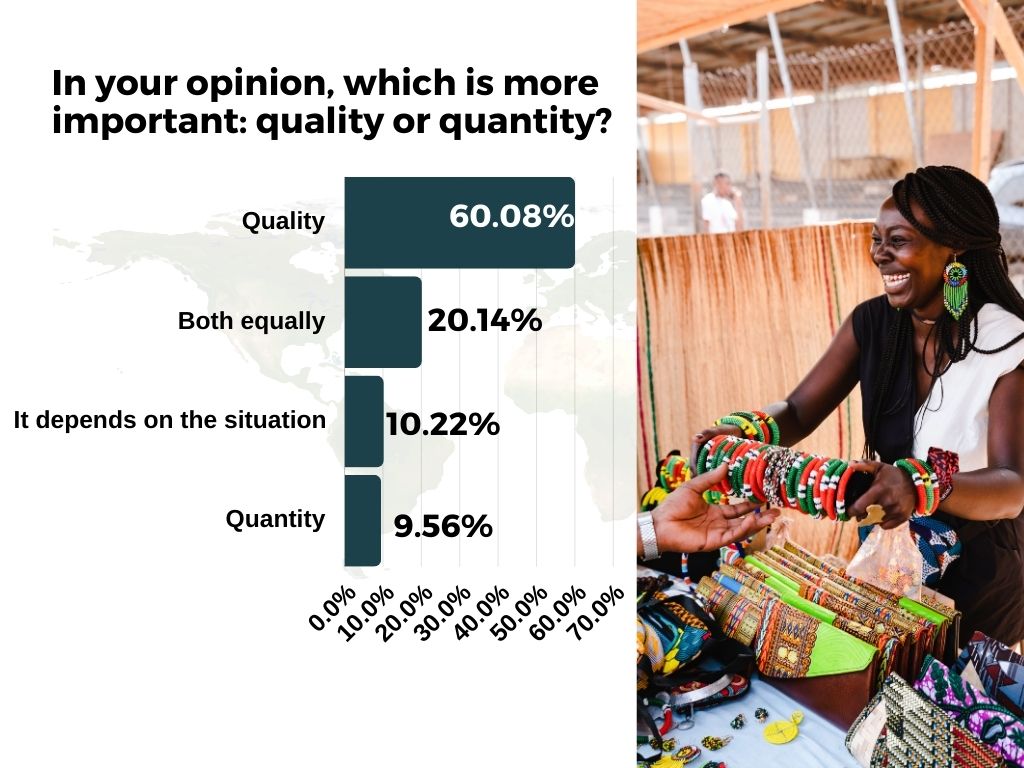
How do you define “quality” when it comes to products?
The survey findings suggest that 40.48% of respondents define quality by performance and functionality, while 39.35% associate it with durability and longevity. Additionally, 17.22% define quality in terms of customer satisfaction.
 Does focusing on producing a larger quantity of products compromises their quality?
Does focusing on producing a larger quantity of products compromises their quality?
Overall, a majority of the respondents believe that increasing the quantity of production results in a reduction of quality. Specifically, 57.82% of respondents expressed regret for prioritizing quantity over quality, while a much lower percentage, 15.70%, regretted prioritizing quality.
Methodology/About this Survey
This dip stick survey was run via the GeoPoll mobile application in March 2024 in Ghana, Kenya, and Tanzania. The sample size was 4,035, composed of random app users between 18 and 60. Since the survey was randomly distributed, the results are slightly skewed towards younger respondents.
Please get in touch with us to get more details about exclusive GeoPoll surveys, conduct a scientific study of dating apps, or other topics in Africa, Asia, and Latin America.

